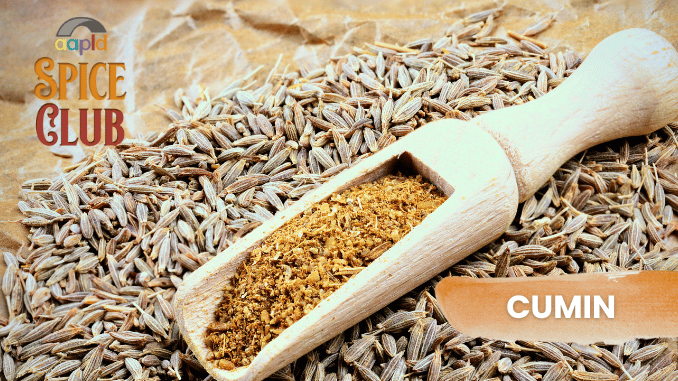
Cumin is a spice made from the dried seeds of the Cuminum cyminum plant, which belongs to the parsley family. It has a warm, earthy, and slightly nutty flavor. It is used in
cuisines across India, Mexico, the Middle East, and North Africa.
Flavor Profile: Cumin has a warm, earthy, and slightly nutty taste with a hint of citrus and peppery notes.
Culinary Uses: spice blends (essential in curry powder, garam masala, taco seasoning, and berbere spice), soups & stews (adds warmth to lentil soups, chili, and stews), rice & grains
(used in pilafs, biryanis, and couscous), meats & vegetables (rubbed on grilled meats and roasted vegetables), breads & dips (delicious in flatbreads, hummus, and yogurt sauces).
Health Benefits: Aids Digestion: Helps reduce bloating and indigestion.
- Rich in Antioxidants: Contains compounds that fight inflammation and oxidative stress.
- Supports Immunity: Has antimicrobial properties that may help fight infections.
- Regulates Blood Sugar: May help control blood sugar levels.
Fun Facts: Cumin was used in ancient Egypt for mummification and as a seasoning. In medieval Europe, cumin symbolized love and loyalty, often given to soldiers before battle. In some cultures, cumin is believed to ward off the evil eye and bring good luck.

